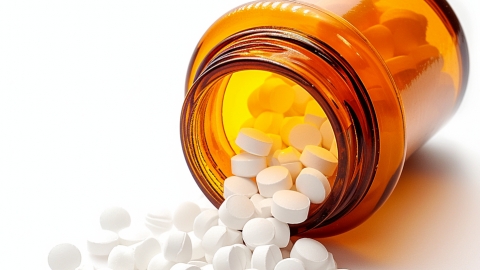What are the efficacy and side effects of Compound Licorice Tablets?
Generally, the effects of Compound Liquorice Tablets include cough suppression, expectoration, anti-inflammatory action, mucosal protection, and relaxation of tracheal smooth muscles. Side effects may include gastrointestinal discomfort, water and sodium retention, elevated blood pressure, hypokalemia, and allergic reactions. If necessary, this medication should be used under the guidance of a physician. A detailed explanation is as follows:

I. Effects of Compound Liquorice Tablets
1. Cough Suppression
Liquorice extract contained in Compound Liquorice Tablets has a cough-suppressing effect. It can inhibit the cough center, reduce the cough reflex, alleviate dry or severe and frequent coughing, and help patients reduce the frequency of coughing. It is particularly effective in relieving cough caused by colds or pharyngitis.
2. Expectoration
Liquorice extract can also promote respiratory mucus secretion, dilute sputum, and make it easier to expel. At the same time, it stimulates the bronchial mucosa, enhances ciliary movement, accelerates sputum discharge, helps maintain airway patency, and alleviates discomfort caused by sputum accumulation.
3. Anti-inflammatory
Ingredients such as glycyrrhizic acid in Compound Liquorice Tablets have anti-inflammatory properties. They can reduce inflammatory responses in the respiratory mucosa, relieve symptoms such as redness, swelling, and pain caused by inflammation, and have an auxiliary therapeutic effect on inflammatory respiratory diseases such as bronchitis and pneumonia. It can reduce inflammation-induced damage to the respiratory tract.
4. Mucosal Protection
Compound Liquorice Tablets can form a protective film on the surface of the respiratory mucosa, reducing irritation and damage from external irritants such as dust, bacteria, and allergens. It helps repair and regenerate respiratory mucosa and enhances the respiratory tract's defense functions.
5. Relaxation of Tracheal Smooth Muscle
Certain components in Compound Liquorice Tablets can relax tracheal smooth muscles, relieve tracheal spasms, make airways more open, and improve ventilation. It can alleviate symptoms such as dyspnea and wheezing caused by tracheal spasms and is commonly used as an adjunctive treatment for conditions like asthma.
II. Side Effects of Compound Liquorice Tablets
1. Gastrointestinal Discomfort
Compound Liquorice Tablets may irritate the gastric mucosa, causing symptoms such as nausea and vomiting. They may also cause mild diarrhea, affecting the normal digestive and absorptive functions of the intestines, thereby interfering with nutrient uptake and metabolic balance in the body.
2. Water and Sodium Retention
The licorice ingredients in Compound Liquorice Tablets may lead to water and sodium retention, causing excessive accumulation of water and sodium ions in the interstitial spaces of body tissues, resulting in edema. This may manifest as swelling of the eyelids, lower limbs, and may be accompanied by weight gain.
3. Elevated Blood Pressure
Certain components of licorice may affect the renin-angiotensin-aldosterone system in the body, leading to elevated blood pressure. For patients with hypertension, this may make blood pressure control more difficult and increase the risk of cardiovascular and cerebrovascular diseases.
4. Hypokalemia
Long-term or excessive use of Compound Liquorice Tablets may increase potassium excretion through the kidneys, leading to a decrease in potassium ion levels in the body and causing hypokalemia. Patients may experience symptoms such as muscle weakness, limb numbness, and arrhythmia. In severe cases, it may affect the normal functioning of multiple organs and systems, including the heart and muscles.
5. Allergic Reactions
Some individuals may be allergic to certain components of Compound Liquorice Tablets, experiencing skin symptoms such as rashes and itching. In severe cases, allergic shock symptoms such as dyspnea and laryngeal edema may occur.
In daily life, it is important to note that Compound Liquorice Tablets may lead to dependency and should not be taken for long periods or in large quantities. If symptoms do not improve after 3–7 days of use, the medication should be discontinued promptly, and medical advice should be sought to avoid delaying the condition due to self-medication.








